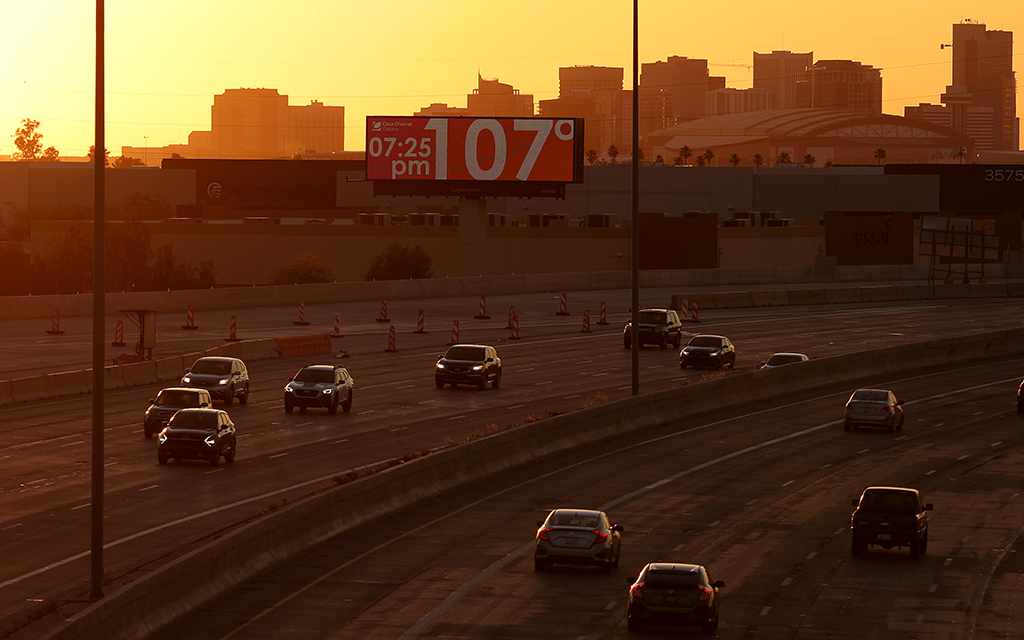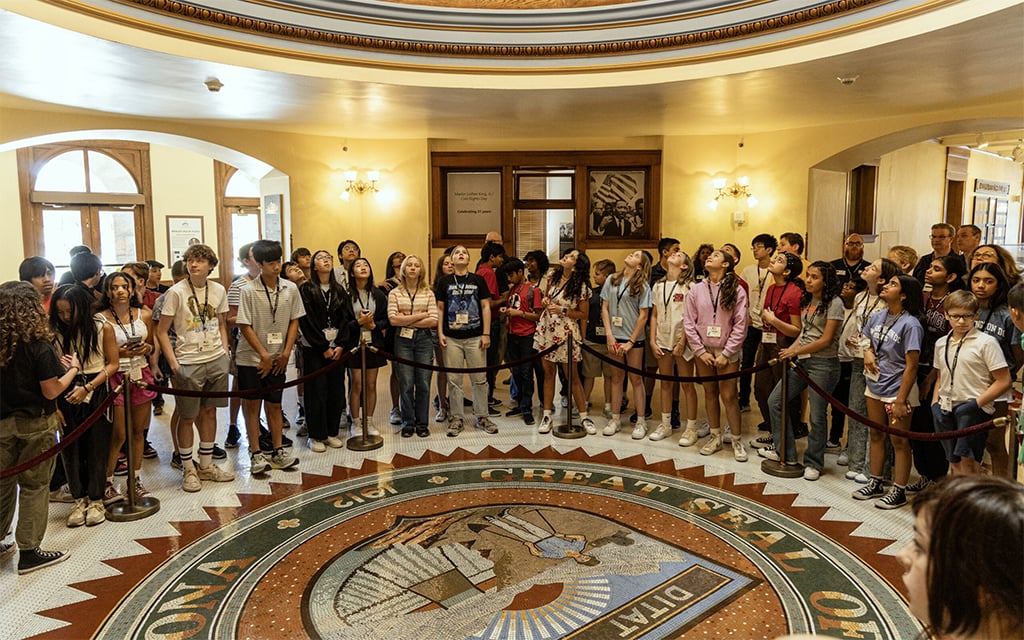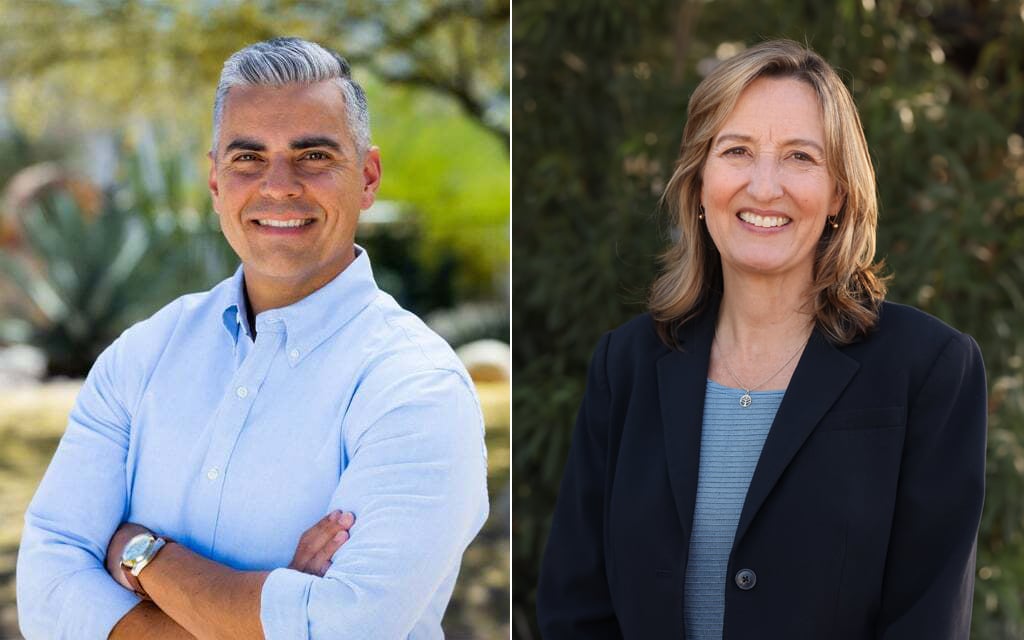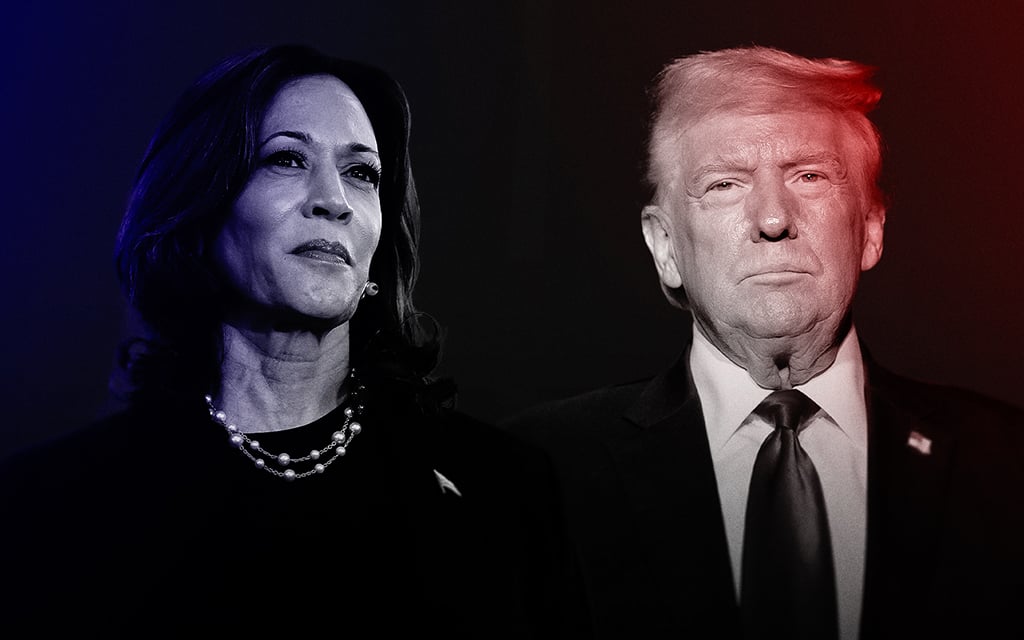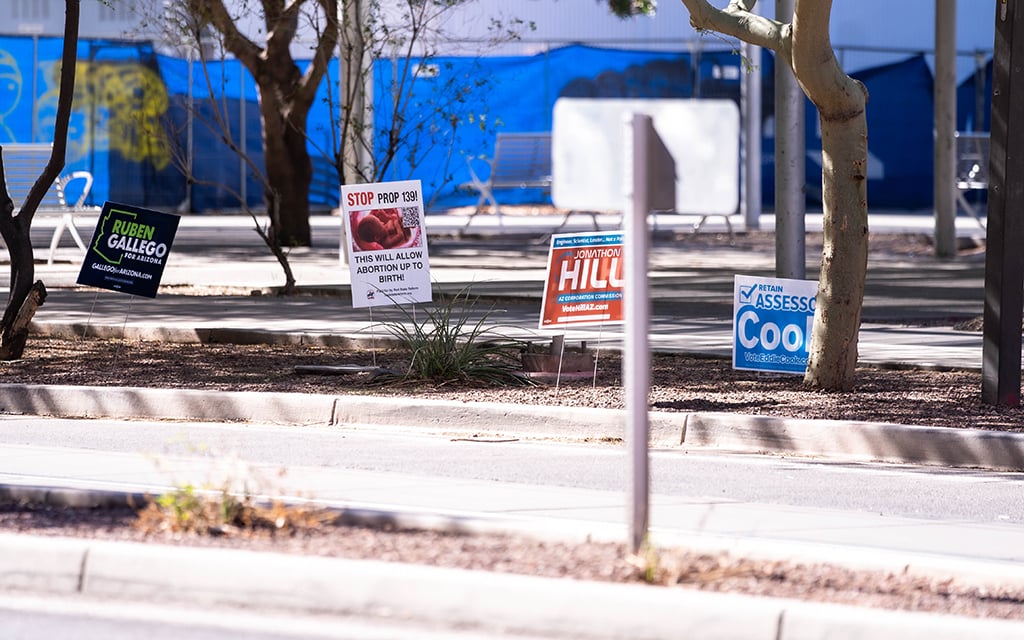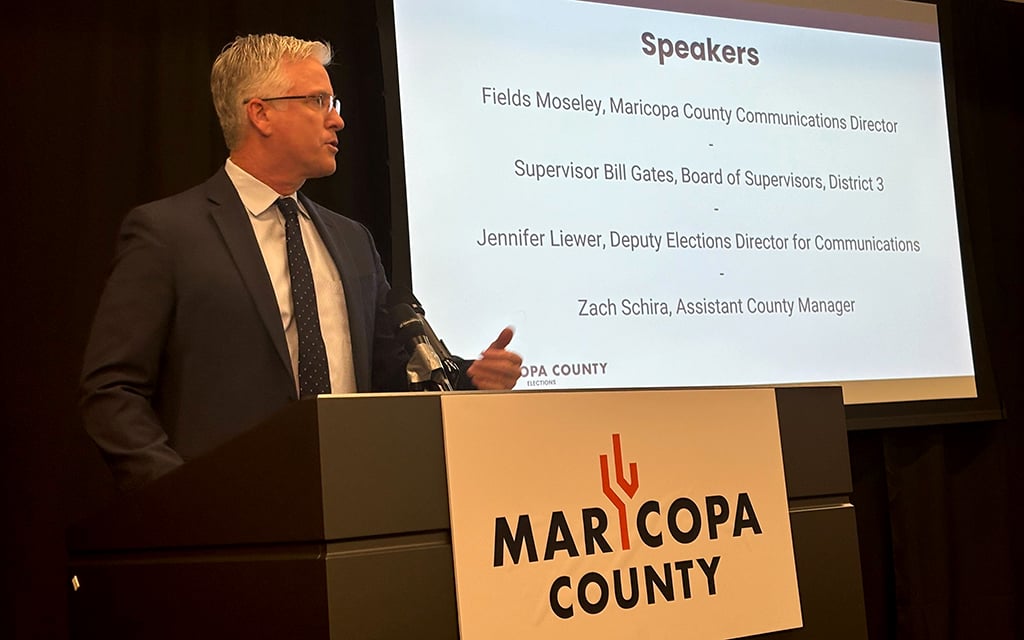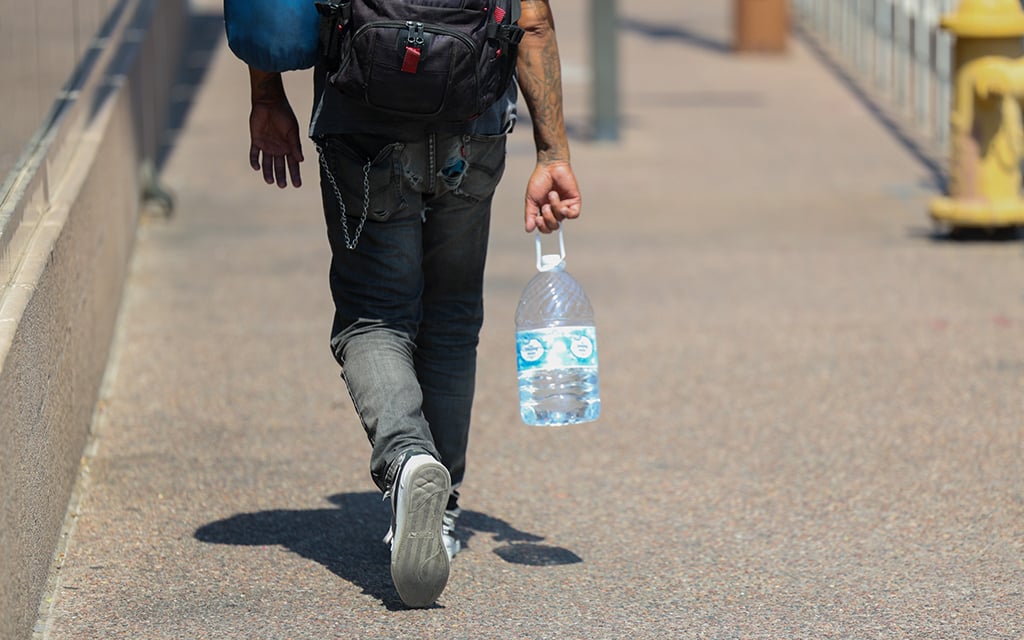
Climate change continues to influence Arizona heat, and the state has broken multiple heat records this summer. Polling has shown that Arizona voters are taking climate into consideration for the upcoming presidential election. (File photo by Grace Hand/Cronkite News)
PHOENIX – More heat and wildfires and less rainfall are among the risks of climate change in Arizona, and some voters are looking to the November presidential election for climate action.
However, it’s hard to define how Vice President Kamala Harris and former President Donald Trump plan to take on these challenges.
The issue, according to experts, affects Arizonans in many different and complicated ways.
“We’re seeing increased heat records basically across the board,” said Vernon Morris, a professor of chemistry and environmental science at Arizona State University. He said other Arizona-specific effects include “decreased rainfall patterns, increased wildfires, which affects all aspects of our lives, from the air we breathe to threats to property to threats to livelihood.”
The Intergovernmental Panel on Climate Change, the United Nations body for assessing the science related to climate change, released a report in 2023 detailing the urgency of the issue.
It said that government actions “play a crucial role” in moving toward climate resilient development.
“Climate change is a threat to human well-being and planetary health,” the report said. “There is a rapidly closing window of opportunity to secure a liveable and sustainable future for all.”
Multiple aspects of Arizonans’ well-being are impacted by climate change.
“It really does affect folks who either have limited access to air conditioning or have older systems for air conditioning. It affects folks who are unhoused, it affects folks who are trying to grow things, whether on a subsistence level or recreational level,” Morris said. “It’s affecting the bottom line, how much you have to spend on energy, how much you need to spend on water.”
Harris’ and Trump’s climate policy
Both candidates have different approaches to the issues of climate change and energy, yet both have touted their support of at least some fossil-fuel production.
Taking on climate change is important to Arizona voters, whose votes in the swing state will be influential in deciding the November presidential election. According to a Morning Consult and Bloomberg poll conducted in late August, 64% of Arizona voters said that climate change is very important or somewhat important when deciding who to vote for in the presidential election.
The Trump campaign policy platform makes no mention of climate change, but it does mention making the U.S. a dominant energy producer. His site also includes the Republican Party platform, which says: “We will DRILL, BABY, DRILL and we will become Energy Independent, and even Dominant again.”
It also says that Trump would lift “restrictions on American Energy Production” and terminate “the Socialist Green New Deal.”
A 2021 congressional resolution recognized “the duty of the Federal Government to create a Green New Deal.” The resolution called for emissions reductions, the creation of millions of high-wage union jobs and securing clean air and water. However, the legislation has not been passed.
Later on, the platform says Republicans would “streamline permitting, and end market-distorting restrictions on Oil, Natural Gas, and Coal.”
In the presidential debate hosted by ABC on Sept. 10, when asked about climate policy, Trump brought up auto plants in Mexico and tariffs on cars, among other things.
During Trump’s presidency, crude oil production increased to record levels. But the Biden administration surpassed that record and reached 12,395 barrels of crude oil produced per day in 2023, according to the U.S. Energy Information Administration.
The extent to which fossil-fuel use can continue to increase while lessening the impact of climate change is questionable, according to experts. ASU’s Morris said a reduction is necessary in most cases, but he offered some caution.
“I think it’s not realistic to say, ‘Let’s end it,’ because that’s triggering some catastrophes along the line, and how do you practically implement that? But I think there are ways of reducing it,” Morris said.
While president, Trump withdrew from the Paris Climate Accord, approved the Keystone XL and Dakota Access pipelines and opened the Arctic National Wildlife Refuge in Alaska to oil and gas leasing, among other policy decisions promoting fossil-fuel use.
Harris, on the other hand, has a paragraph on her issues page explaining her plans to “Lower Energy Costs and Tackle the Climate Crisis.”
It says that she and running mate Tim Walz will “always fight for the freedom to breathe clean air, drink clean water, and live free from the pollution that fuels the climate crisis.”
The Democratic Party platform includes more details, including investing in “clean energy research and development,” creating “clean energy jobs,” and eliminating “tens of billions of dollars in other unfair oil and gas subsidies.”
There is also a link on the Harris campaign site to an 82-page plan for the middle class. It says a Harris-Walz administration would invest in clean energy projects.
In the Sept. 10 presidential debate, on the subject of climate change, Harris said she was “proud that as vice president over the last four years, we have invested a trillion dollars in a clean energy economy while we have also increased domestic gas production to historic levels.”
In a separate response to a question about fracking, Harris said, “I will not ban fracking. I have not banned fracking as vice president of the United States. And, in fact, I was the tie-breaking vote on the Inflation Reduction Act, which opened new leases for fracking.”
Katharine Jacobs, the director of the Center for Climate Adaptation Science and Solutions at the University of Arizona, said decreasing fossil-fuel production and use, including fracking, “needs to happen in the longer term.”
“The question is, in the context of ensuring economic stability and national security, are we ready yet to go directly to the complete elimination of fossil fuels? I think the answer to that is no, we just need to escalate quickly the renewable energy parts of our portfolios,” Jacobs said.
Though Arizona is not among the top fracking states, the practice releases large amounts of methane into the atmosphere. A 2022 International Energy Agency report found that “methane is responsible for around 30% of the rise in global temperatures since the industrial revolution,” and it said reductions in methane emissions are important to limiting near-term warming.
A sticking point for some advocates is that Harris’ campaign does not emphasize the Green New Deal, even though she supported it in 2019.
“Kamala Harris herself supported the Green New Deal. I want to see her take initiative on the climate crisis and not tout record gas and oil production and actually live up to her promise and commitment for a Green New Deal,” said Ashton Dolce, a 17-year-old climate activist with Sunrise Movement Phoenix.
“We’re definitely making an electoral impact because we realize Donald Trump is such a threat,” Dolce said. “But, it’s also pretty clear that Kamala Harris no longer supports a Green New Deal.”
Sunrise Movement activists sat in at the Donald Trump Phoenix campaign office on Monday. Their signs read “Trump Profits, Arizona Burns” and “Big Oil Owns Trump.”
“President Trump advanced conservation and environmental stewardship while promoting economic growth for families across the country,” Karoline Leavitt, Trump campaign national press secretary, said in a statement. “America’s energy agenda under President Trump produced affordable, reliable energy for consumers along with stable, high-paying jobs for small businesses — all while dropping U.S. carbon emissions to their lowest level in 25 years. Kamala Harris’ radical energy policies such as her EV mandate and the Green New Scam will hurt American workers, help China, and do virtually nothing to help the environment.”
After a request for comment, the Harris campaign referred to the climate section in the issues portion of its website.

